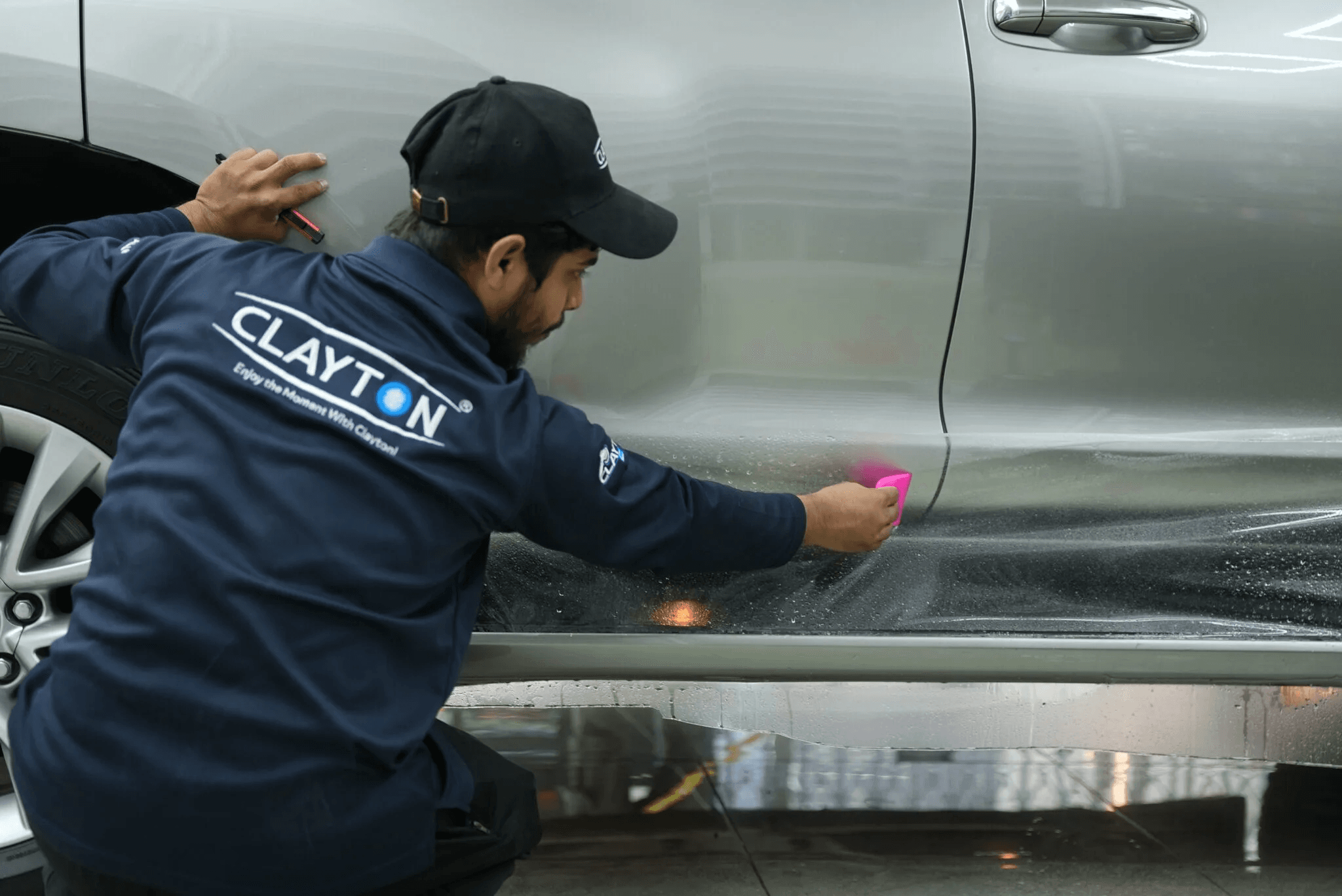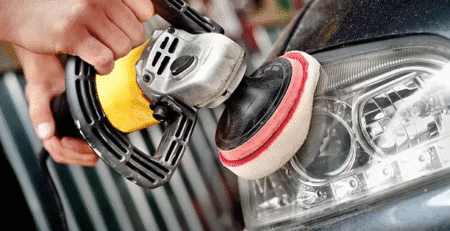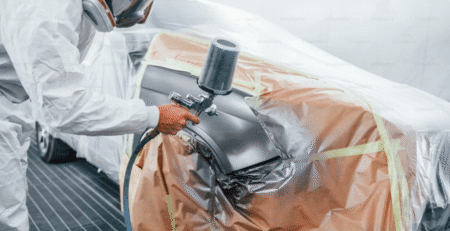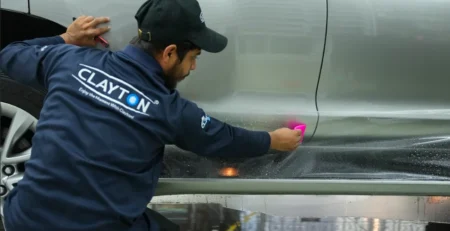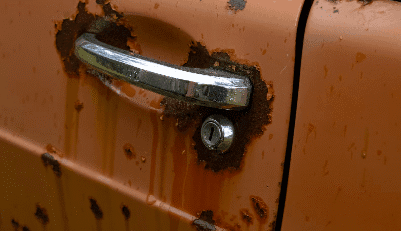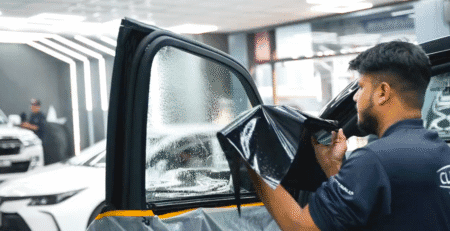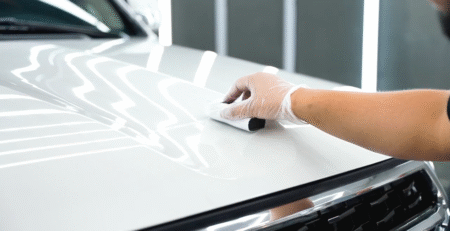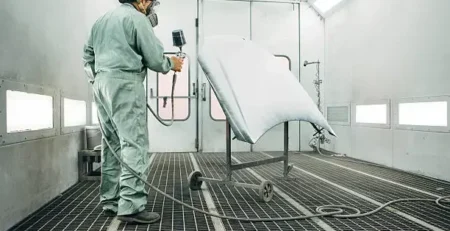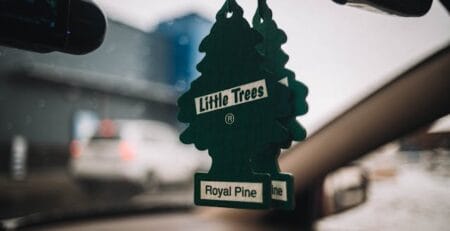Wondering why you shouldn’t wash your car right after getting PPF? Here’s the reason.
That’s because paint protection film (PPF) doesn’t work like magic; it needs time to bond properly. But how long does PPF take to cure? And what does “curing” even mean in this case?
Let’s break down what happens after PPF installation, why the curing process matters, and how to care for your vehicle during this critical period.
What Is PPF and Why Does Settling Time Matter?
Paint protection film acts as an invisible shield that safeguards your vehicle’s paintwork against stone chips, bird droppings, bug splatter, and other environmental contaminants. It’s a smart investment for car owners who want long-lasting protection and superior protection for their vehicle’s paint.
But installing PPF is not as simple as sticking on a film and calling it a day. After applying PPF, the curing period begins, and this phase plays a big role in how well the film bonds to the paint surface and performs over time.
How Long Until Your PPF Fully Bonds?
The short answer: anywhere between 48 hours to 7 days.
The exact PPF cure time depends on several factors, including the temperature, humidity, and exposure to sunlight. While the film may look set after a few hours, it takes time for the adhesive to cure completely and achieve proper bonding to your vehicle’s paintwork.
In Dubai’s warm climate, where UV exposure is high and direct sunlight is abundant, the curing process might lean closer to the shorter end of that range, but only if handled by a certified PPF installer using high-grade PPF products.
What Actually Happens After PPF Installation?
Curing is the phase where the adhesive underneath the PPF hardens and sets. During this period, any trapped moisture or air bubbles gradually disappear as the film adjusts and settles onto the paint beneath.
Expect to see:
- Minor hazing or cloudiness (this is normal)
- Small air pockets that disappear with time
- A gradual “tightening” of the film as it bonds to the car’s exterior
If you try to clean, wash, or expose the surface to a pressure washer too soon, it may interfere with this process, leading to film lifting, swirl marks, or even premature failure.
What Factors Affect How Quickly PPF Sets?
Several variables can speed up or slow down the PPF application cure time:
- Climate: Higher temperatures and UV rays help the film air dry faster.
- Application: A proper application using a heat gun can reduce the overall curing period.
- Aftercare: Avoiding contact with water or contaminants like tree sap, bird droppings, and bug splatter is critical.
- Vehicle’s Paint Condition: If paint correction was done before the PPF installation process, the surface will allow for better adhesion and quicker settling.
For ceramic coated vehicles, the curing process may take a bit longer, especially if you’re applying ceramic coating on top of the PPF for more comprehensive protection.
What NOT to Do After Getting PPF Installed
The biggest mistake many car enthusiasts make after installing PPF is washing their car too early. Even if your vehicle looks dry and clean, it isn’t fully cured yet.
Here’s what to avoid:
- No car washes or soapy water for at least 7 days.
- Keep the car in the shade if possible to reduce light scratches or water spotting.
- Don’t use a pressure washer, even lightly.
- Stay away from automatic car washes.
- Avoid applying ceramic coating during this period unless guided by your installer.
And if you spot minor bubbles or unevenness? Don’t panic. These usually disappear once the film has had a chance to cure fully.
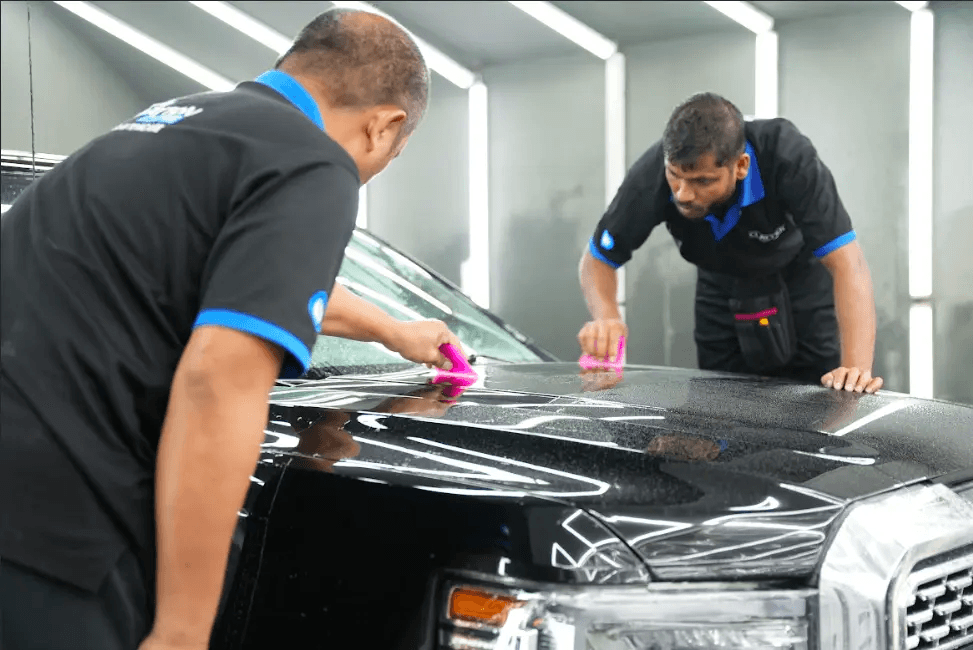
When Is It Safe to Wash Your Car After PPF Installation?
Ideally, wait at least one week before doing a full wash. And when you do, opt for the two bucket method, use a soft microfiber cloth, and a clean wash mitt. The goal is to prevent surface scratches and maintain the self-healing properties of the film.
If you’re thinking of installing a ceramic coating afterward for extra gloss and protection, make sure the PPF is completely cured first.
Can You Park Outside While PPF Is Settling?
Yes, but it depends on how exposed your parking area is. UV rays can help speed up curing, but too much direct sunlight or exposure to dust, tree sap, or environmental contaminants could compromise proper adhesion.
If you can, leave your car in a shaded area. But if your only option is outdoor parking, try covering the car with a breathable, non-abrasive cover for long-lasting protection.
Why Choosing a Certified PPF Installer Matters
Absolutely. A certified PPF installer not only ensures proper bonding of the film but also knows how to manage hard to reach areas, prevent film lifting, and apply according to the manufacturer’s instructions.
Cutting corners can lead to visible lines, inconsistent edges, or worse, damaging the vehicle’s paint underneath.
Does Ceramic Coating Affect How Long Does PPF Need To Settle?
If you’re applying ceramic coating on top of the film, allow the PPF to cure first. Then, learn more about how long ceramic coating lasts in Dubai it typically takes 24 to 48 hours to fully set.
Together, PPF and a good quality ceramic coat offer superior protection for your car’s exterior from rock chips, stone chips, and even surface scratches.
So, how long does PPF take to cure? On average, around one week for most conditions. That small window of patience leads to more comprehensive protection, a longer lifespan for your PPF, and enhanced resale value for your vehicle.
Taking shortcuts during curing could mean paying more later in repairs or reinstallation. At Clayton Care, we guide every client through this critical period so your vehicle surfaces get the full benefit of high grade PPF.
Don’t risk damaging your investment with poor aftercare or rushed installations. At Clayton Care, we provide professional PPF installation, advanced paint protection, and precision window tinting, all tailored to keep your vehicle in its best shape.
Whether you’re looking to preserve your car’s shine or boost its long-term value, our expert team is ready to help. Book your appointment today for proper application, long-lasting protection, and complete peace of mind. Reach us at +971521454860, visit us at Nad Al Hamar Rd, Ras Al Khor Industrial Area, Dubai, or head to clayton auto care to learn more.
Got Questions?
Frequently Asked Questions
How long does PPF take to cure in hot climates like Dubai?
In hot climates, PPF typically cures within 48–72 hours due to high UV exposure, but we still recommend waiting up to 7 days before washing.
Can I drive my car during the curing period?
Yes, driving is fine. Just avoid high-pressure washes, off-road areas, or parking under trees where bird droppings or sap can cause damage.
What happens if I wash my car too soon after PPF installation?
Washing too early can disrupt the film’s adhesion, cause lifting, or trap moisture—leading to reduced performance or visual flaws.
Does curing time affect the self-healing ability of PPF?
Yes, the film must cure fully to activate its self-healing properties, which help eliminate swirl marks and light scratches over time.
Is ceramic coating necessary after PPF?
Not required, but applying ceramic coating on cured PPF adds an extra layer of defense and makes cleaning easier, especially in dusty environments.
